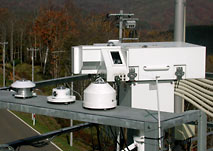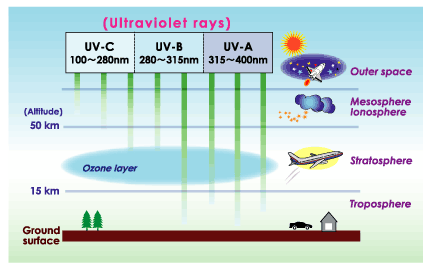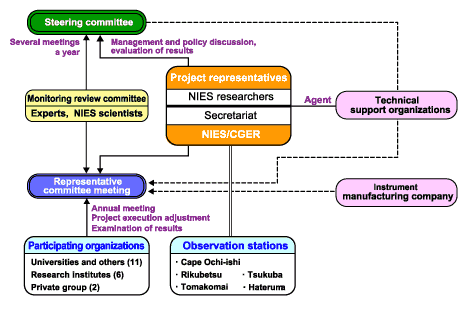OVERVIEW
Objectives

Photo. 1. UV-B measurement system
(Rikubetsu, Hokkaido)
There is increasing concern about ultraviolet radiation (UV-B: 280 to 315 nm) and its effects on human health due to ozone depletion in the stratosphere. With the cooperation of universities, research institutes, and nongovernmental organizations in Japan, the Center for Global Environmental Research (CGER) leads a voluntary network that provides UV-B measurement data to enhance our understanding of the intensity of UV-B on a national scale and to evaluate the hazardous effects of UV-B on human health.

Figure 3. UV radiation at the ground level
Outline
The goal of the network is to widen the UV-B monitoring coverage area by encouraging the participation of UV-B monitoring stations throughout Japan, including five monitoring stations run by CGER. Each site is required to use the same apparatus and methods. Also, the network is able to take advantage of the geographical features of the individual sites and the epidemiological research carried out at different sites. To increase the density of data collection sites, the network will grow further with the future cooperation of other organizations. The monitoring data from each site, while belonging to the individual organizations, are shared among participating organizations. To ensure collection of accurate monitoring data at each site, CGER maintains the monitoring equipment and is responsible for the evaluation, compilation, and distribution of the data (see Fig. 4).

Figure 4. Implementation of the UV-B monitoring network
